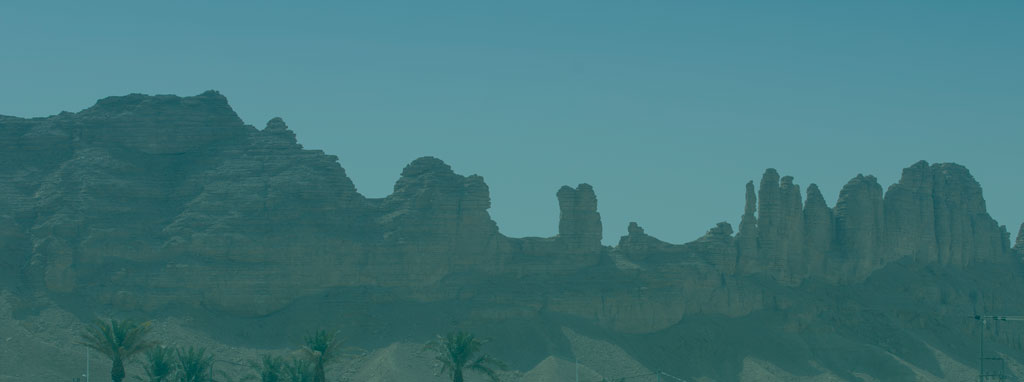AM Car Radio Fate Lies With Congress
BY JULIE BYKOWICZ AND TED MANN
WASHINGTON—AM radio advocates including conservative talk show hosts like Hugh Hewitt and federal emergency officials are lobbying Congress to stop carmakers from dropping the old medium. Tesla, Volvo , and BMW are among the companies that have already stopped providing AM tuners in some models. Last year Ford said it would join them—until CEO Jim Farley reversed course “after speaking with policy leaders.” Lawmakers say most car companies are noncommittal, so they want to require them by law to keep making cars with free AM radio. Support-ers argue it is a critical piece of the emergency communication network, while the automakers say Americans have plenty of other ways to receive alerts and information.
The legislation has united lawmakers who ordinarily want nothing to do with one another. Sens. Ted Cruz (R., Texas) and Ed Markey (D., Mass.) are leading the Senate effort, and on the House side, Republican Speaker Mike Johnson—a former conservative talk radio host in Louisiana—and progressive “squad” member Rep. Rashida Tlaib (D., Mich.) are among about 200 co-sponsors. Rep. Josh Gottheimer (D, N.J.), who introduced the House bill, plans Monday to ask the National Highway Traffic Safety Administration to require a safety warning on price stickers of vehicles that lack AM radio.
There are more than 4,500 AM radio stations in the U.S., the president of the National Association of Broadcasters, Curtis LeGeyt, said. More than 400,000 listeners have contacted lawmakers, he said. Hewitt, a radio host since 1990, said, “There’s a diversity of thought and fun in radio that you can’t get from pod-casts.” He also makes an argument that resonates with Cruz and other conservatives: “Their last chance of getting a fair interview is going away.” The prospect of losing AM in vehicles has also caused alarm in Latino media, said Sylvia Banderas Coffinet, chief executive of Latino Media Network, which owns more than a dozen stations. AM radio DJs are “trusted voices in the community,” she said.
The medium has long been in decline. A spring 2023 Nielsen survey, the most recent one available, showed that AM radio reaches about 78 million Americans every month, down from nearly 107 million in the spring of 2016, one of the earliest periods for Nielsen data.
Tiffany Moore, senior vice president of political and industry affairs for the Consumer Technology Association, said automakers and tech advocacy groups have told lawmakers that an AM-radio requirement would be “inconsistent with the principles of a free market.”
Sen. Rand Paul (R., Ky.), who blocked passage of the Senate bill in December, noted the irony of Republicans like Cruz arguing for government mandates on private business. Both the Senate and House bills keep picking up new supporters.
Automakers say the rise of electric vehicles is driving the shift away from AM, because onboard electronics interfere with AM radio signals. Shielding to reduce interference would cost carmakers $3.8 billion over seven years, estimates the Alliance for Auto-motive Innovation, a car-industry trade group.
The Federal Emergency Management Agency says that more than 75 mostly AM radio stations, covering at least 90% of the population, are equipped to continue broadcasting during and after an emergency. Seven former FEMA administrators urged Congress last year to seek assurances from auto makers that they would keep broadcast radio available. Carmakers counter that FEMA’s own alert systems are designed to break in across multiple platforms. Most Americans received the Oct. 4 nationwide test of the emergency alert system on their phones, while about 1% of the population heard it on AM radio, according to a study by the Consumer Technology Association.
The bill unites lawmakers who ordinarily want nothing to do with each other.


A number of carmakers have dropped AM from some models. GETTY IMAGES
Automakers increasingly want to put features “behind a paywall,” Markey said. Auto executives have said that the “software-defined vehicle” provides opportunities to sell drivers subscriptions for features from heated seats to entertainment services. General Motors Chief Executive Mary Barra told investors in October that GM was positioning itself “to drive significant revenue growth from subscriptions in the future.” Markey compared auto-industry resistance to previous opposition to mandates like air bags. “Leaving safety decisions to the auto industry is very dangerous,” he said.
BY JULIE BYKOWICZ AND TED MANN
WASHINGTON—AM radio advocates including conservative talk show hosts like Hugh Hewitt and federal emergency officials are lobbying Congress to stop carmakers from dropping the old medium. Tesla, Volvo , and BMW are among the companies that have already stopped providing AM tuners in some models. Last year Ford said it would join them—until CEO Jim Farley reversed course “after speaking with policy leaders.” Lawmakers say most car companies are noncommittal, so they want to require them by law to keep making cars with free AM radio. Support-ers argue it is a critical piece of the emergency communication network, while the automakers say Americans have plenty of other ways to receive alerts and information.
The legislation has united lawmakers who ordinarily want nothing to do with one another. Sens. Ted Cruz (R., Texas) and Ed Markey (D., Mass.) are leading the Senate effort, and on the House side, Republican Speaker Mike Johnson—a former conservative talk radio host in Louisiana—and progressive “squad” member Rep. Rashida Tlaib (D., Mich.) are among about 200 co-sponsors. Rep. Josh Gottheimer (D, N.J.), who introduced the House bill, plans Monday to ask the National Highway Traffic Safety Administration to require a safety warning on price stickers of vehicles that lack AM radio.
There are more than 4,500 AM radio stations in the U.S., the president of the National Association of Broadcasters, Curtis LeGeyt, said. More than 400,000 listeners have contacted lawmakers, he said. Hewitt, a radio host since 1990, said, “There’s a diversity of thought and fun in radio that you can’t get from pod-casts.” He also makes an argument that resonates with Cruz and other conservatives: “Their last chance of getting a fair interview is going away.” The prospect of losing AM in vehicles has also caused alarm in Latino media, said Sylvia Banderas Coffinet, chief executive of Latino Media Network, which owns more than a dozen stations. AM radio DJs are “trusted voices in the community,” she said.
The medium has long been in decline. A spring 2023 Nielsen survey, the most recent one available, showed that AM radio reaches about 78 million Americans every month, down from nearly 107 million in the spring of 2016, one of the earliest periods for Nielsen data.
Tiffany Moore, senior vice president of political and industry affairs for the Consumer Technology Association, said automakers and tech advocacy groups have told lawmakers that an AM-radio requirement would be “inconsistent with the principles of a free market.”
Sen. Rand Paul (R., Ky.), who blocked passage of the Senate bill in December, noted the irony of Republicans like Cruz arguing for government mandates on private business. Both the Senate and House bills keep picking up new supporters.
Automakers say the rise of electric vehicles is driving the shift away from AM, because onboard electronics interfere with AM radio signals. Shielding to reduce interference would cost carmakers $3.8 billion over seven years, estimates the Alliance for Auto-motive Innovation, a car-industry trade group.
The Federal Emergency Management Agency says that more than 75 mostly AM radio stations, covering at least 90% of the population, are equipped to continue broadcasting during and after an emergency. Seven former FEMA administrators urged Congress last year to seek assurances from auto makers that they would keep broadcast radio available. Carmakers counter that FEMA’s own alert systems are designed to break in across multiple platforms. Most Americans received the Oct. 4 nationwide test of the emergency alert system on their phones, while about 1% of the population heard it on AM radio, according to a study by the Consumer Technology Association.
The bill unites lawmakers who ordinarily want nothing to do with each other.

A number of carmakers have dropped AM from some models. GETTY IMAGES
Automakers increasingly want to put features “behind a paywall,” Markey said. Auto executives have said that the “software-defined vehicle” provides opportunities to sell drivers subscriptions for features from heated seats to entertainment services. General Motors Chief Executive Mary Barra told investors in October that GM was positioning itself “to drive significant revenue growth from subscriptions in the future.” Markey compared auto-industry resistance to previous opposition to mandates like air bags. “Leaving safety decisions to the auto industry is very dangerous,” he said.


